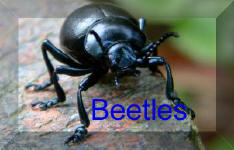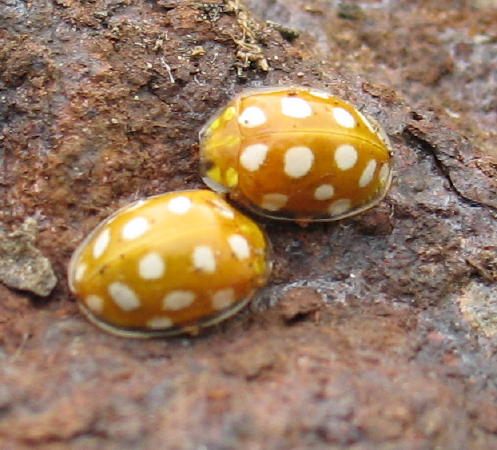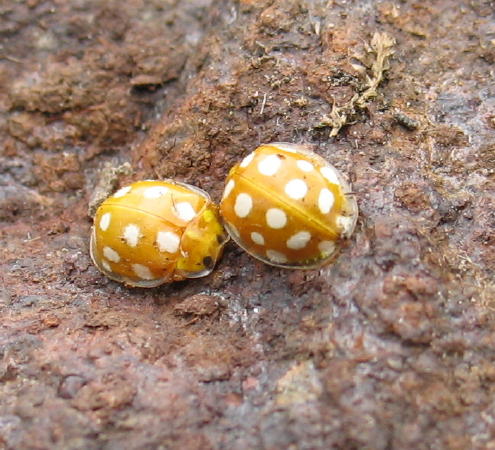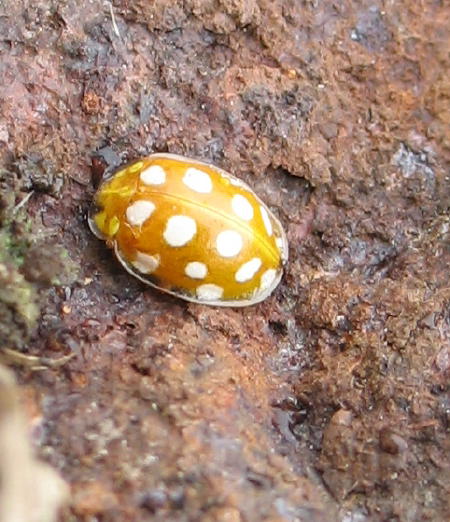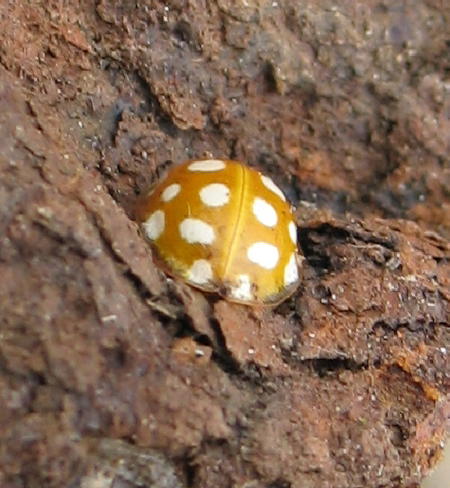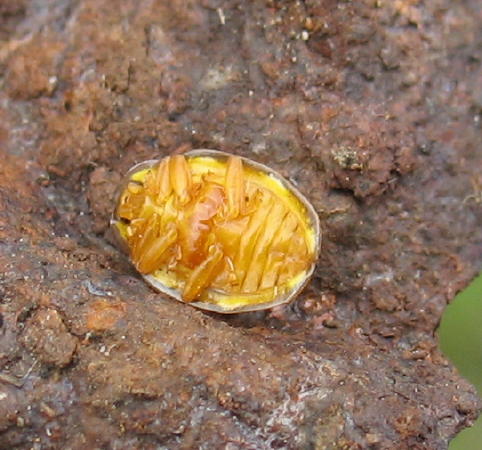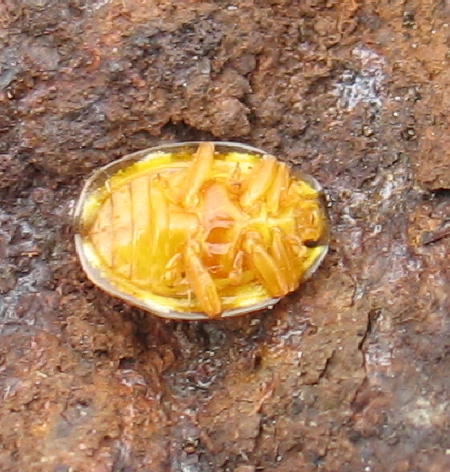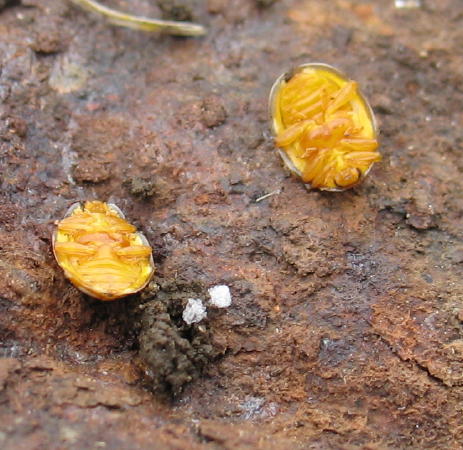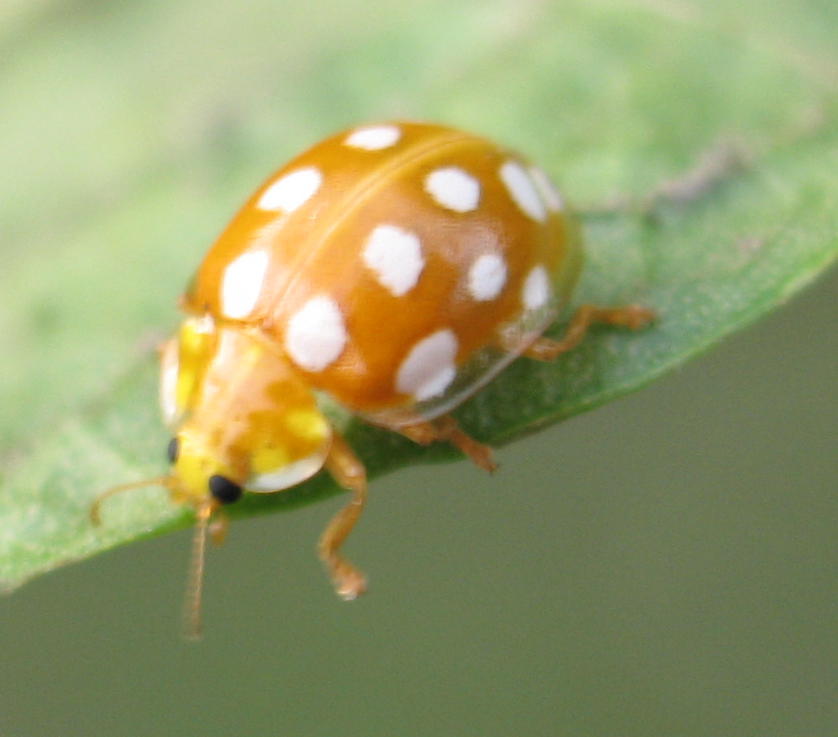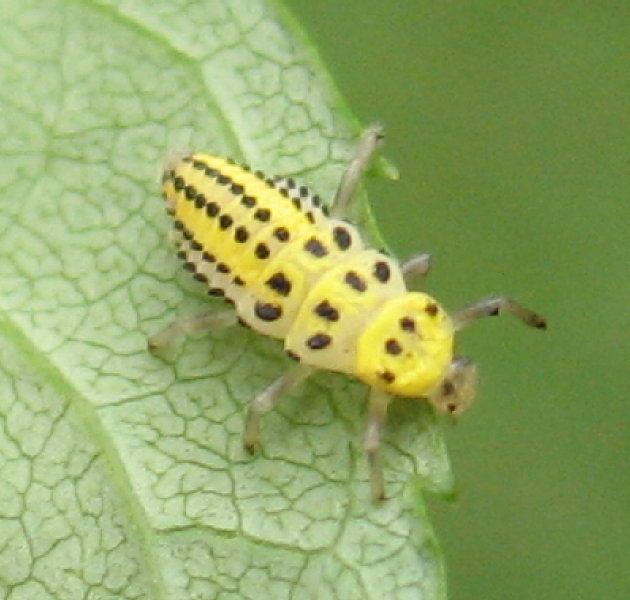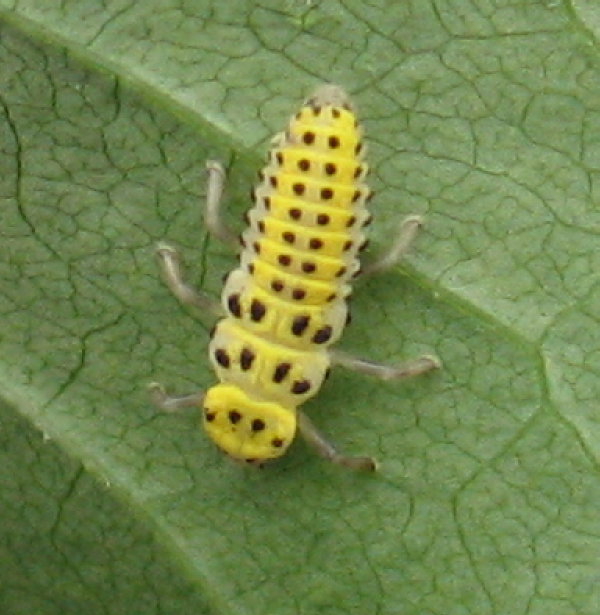Back To

Home >Coleoptera >> Coccinellidae
Size: Aprox 4.5 - 6 mm
Description Usually there are 16 creamy-white coloured spots. , but there can be as few as 14 spots. Bright yellow or orange in colour, with a translucent border to the wing casings and pronotum (bit between the head and wing casings).. It has an orange head, and legs, and the eyes are black. The underside is orange
Observed Months seen: April to October
Diet MildewOrange Ladybirds are unusual s, as the adults and larvae feed on mildew on the underside of various broadleaved trees. Most other ladybirds feed on aphids.
Habitat: Deciduous trees Woodland. Frequently found around sycamore or lime treesOrange Ladybirds have been considered for many years. as a scarce and local insect Of recent there has been increase in range and frequency.
Sinilar Species
Calvia decemguttata this beetle resembles the Orange Ladybird a lot, but it is another species altogether. The orange is a little darker in colour and on the shields are only 10, rather large white dots. A typical ladybird, reaching some 6.5 mm. It differs from most other ladybirds by having orange colour persist ventrally . Most other species have black undersides. It is rather scarce on the continent and is usually found only in places with lime trees on which the larvae depend. The adults (not dependant on lime-trees) appear in gardens now and again. It is not a British species, despite being found sporadically in certain parts of England.
Images Found 6th April 2008 on woodland margin beneath a pile of stone and brick , specifically two specimens tightly adhering on an old piece of iron. The margin was close to some coniferous garden waste at a woodland margin adjacent to some barren waste grassland above Sunnyvale , Calderdale , west Yorkshire
16-Spot Orange Ladybird Halyzia sedecimguttata
